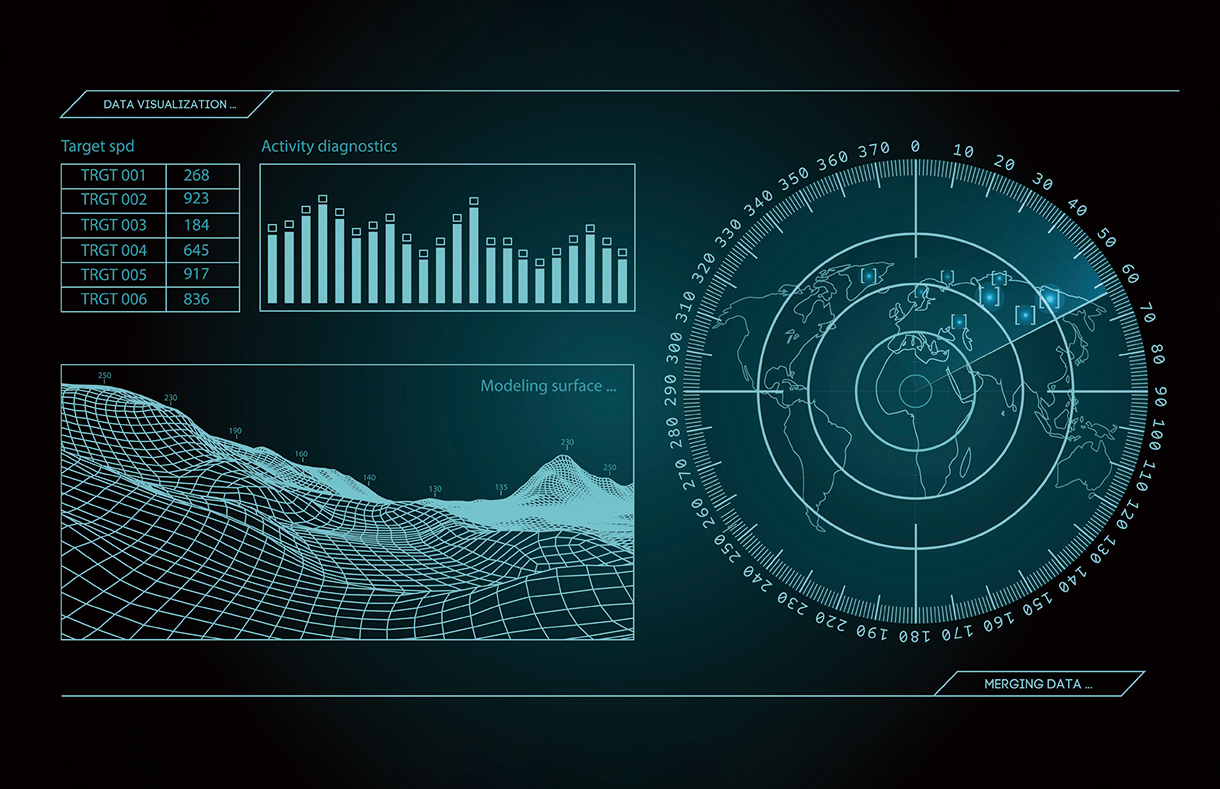

Story
신호정보 기술 국산화로
국가 방위 정보력 증대
Strengthening National Defense through Localization of Signal Intelligence Technology
신호정보연구센터장 윤동원 교수(융합전자공학부)
Prof. Dongweon Yoon, Director of the Signal Intelligence Research Center
(Department of Electronic Engineering)
- 글 김현지
- 사진 이현구
- Writing Kim Hyun-ji
- Photograph Lee Hyeon-gu
Scroll Down
While information warfare, cryptanalysis, and espionage are frequently portrayed in movies, their significance extends far beyond the realm of entertainment. In modern society, intelligence can be a critical weapon intrinsically linked to national security and the nation’s future. The level of intelligence capability significantly influences a nation’s strength. To gain insight into this crucial field, we interviewed Professor Dongweon Yoon, who leads the Signal Intelligence Research Center.
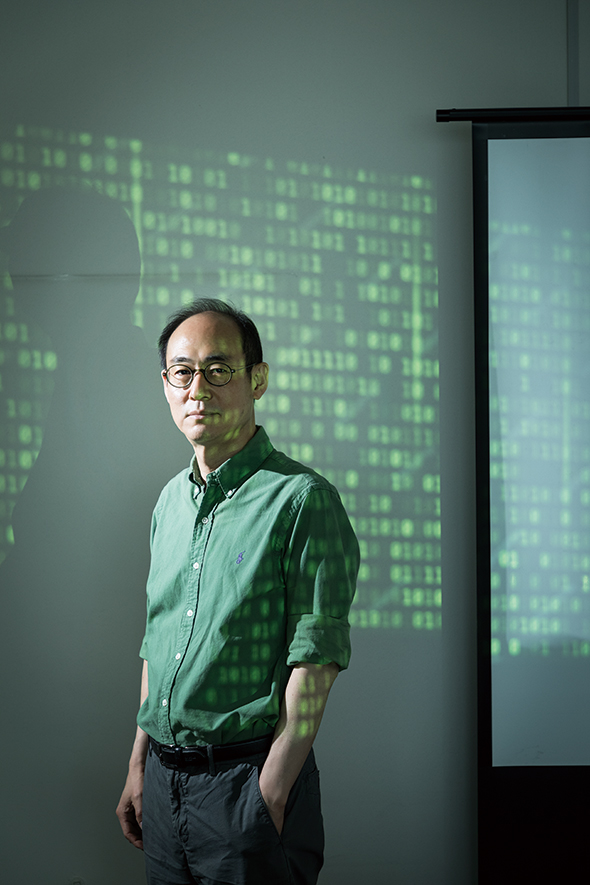
국가의 운명 좌우하는 신호정보
국가정보란 국가를 운영하는 데 바탕이 되는 광범위한 영역을 망라하는 정보다. 정치, 외교, 경제, 군사 등 모든 부문을 아우른다. 이중 국가 존립에 지대한 영향을 미치는 것은 군사정보다. 국가의 미래를 좌우하는 핵심 국가정보인 군사정보는 다시 △영상정보 △인간정보 △공개출처정보 △신호정보 등으로 구분된다. 이중 신호정보는 통신과 전자적 신호를 탐지·수집, 분석해 얻어지는 정보를 말한다.
“신호정보의 중요성은 과학기술이 발전한 세상일수록 커집니다. 전화회선, 무선통신(전자기파), 이메일, 전신 부호, 계기의 제어 신호뿐 아니라 레이더나 레이저 등의 유도 에너지, 적외선, 방사성 물질의 방사현상 등이 모두 신호정보에 포함됩니다.”
수없이 많은 ‘신호’ 속에 둘러싸여 살아가는 4차 산업혁명 시대. 윤동원 교수는 미래로 갈수록 신호정보 분야 기술이 핵심 전력이 될 것이라 말했다. 신호정보는 원칙적으로 국내가 아닌, 국외 정보가 타깃이다. 주변 국가들의 상황을 파악해 대응책을 모색하며 상대국의 의도를 파악하기 위해 활용된다.
1942년 미드웨이 해전은 신호정보 기술의 중요성을 명확하게 보여주는 사례다. 당시 미국은 일본보다 함대도 적고 열세에 놓여 있었다. 하지만 일본에 거짓 정보를 제공함으로써 전략적 우위를 점할 수 있었고, 태평양 전쟁에서 승리하는 발판을 마련했다. 2022년에 발발한 러시아-우크라이나 전쟁에서도 신호정보의 역할과 중요성이 크게 대두됐다. 드론 등 무인체를 활용해 상대방의 목표를 타격하기 위해서는 반드시 신호정보 기술 고도화가 선행돼야 한다.
“태평양 전쟁 이후 신호정보의 중요성을 절감한 미국은 1952년 국가안보국(NSA)을 창설하고 막대한 투자를 감행했습니다. 덕분에 세계 최고의 신호정보 기술을 갖추게 됐죠. 미국을 비롯한 선진국들은 전시나 평시를 막론하고 신호정보 능력 증진을 위해 투자를 아끼지 않습니다. 우리나라는 러시아, 중국, 일본 등 고도의 신호정보 기술을 보유한 국가들과 인접해 있어요. 북한의 행보에도 촉각을 기울여야 하고요. 그 어떤 국가보다 신호정보의 중요성이 크다고 할 수 있습니다.”
Signal intelligence determining the destiny of nations
National intelligence encompasses a wide range of intelligence crucial for governing a country, including politics, diplomacy, the economy, and military affairs. Among these, military intelligence profoundly influences a nation’s existence. Military intelligence, the key to national intelligence that determines the future of a nation, includes △imagery intelligence, △human intelligence, △open-source intelligence, and △signal intelligence. Signal intelligence refers explicitly to intelligence obtained through detecting, collecting, and analyzing communication and electronic signals.
Professor Yoon explains, “The importance of signal intelligence grows as science and technology advance. It encompasses not only telephone lines, wireless communications (electromagnetic waves), emails, telegraph codes, and machinery control signals, but also guided energy like radar or laser, infrared, and radiation phenomena.”
The era of the Fourth Industrial Revolution is surrounded by countless “signals.” Professor Yoon says that signal intelligence technology will increasingly become a core capability in the future. Signal intelligence primarily targets foreign intelligence rather than domestic information. It is used to understand neighboring countries’ situations and identify their intentions to devise appropriate responses.
The Battle of Midway in 1942 vividly showcases the importance of signal intelligence technology. At that time, the United States had fewer fleets and was at a disadvantage compared to Japan. However, they gained a strategic advantage by providing false information to Japan, thereby laying the foundation for victory in the Pacific War. The role and importance of signal intelligence were prominently highlighted once again during the outbreak of the Russia-Ukraine war in 2022. Advanced signal intelligence technology is essential for utilizing modern warfare’s drones and other unmanned systems to strike targets within the adversary’s territory.
“Recognizing the importance of signal intelligence after the Pacific War, the United States established the National Security Agency (NSA) in 1952 and made substantial investments. As a result, it acquired the world’s best signal intelligence technology. Advanced countries, including the United States, spare no effort in enhancing their signal intelligence capabilities, regardless of peacetime or wartime. South Korea is adjacent to countries with advanced signal intelligence technologies, such as Russia, China, and Japan. We also need to remain vigilant of North Korea’s actions. The importance of signal intelligence is greater for South Korea than any other nation.”
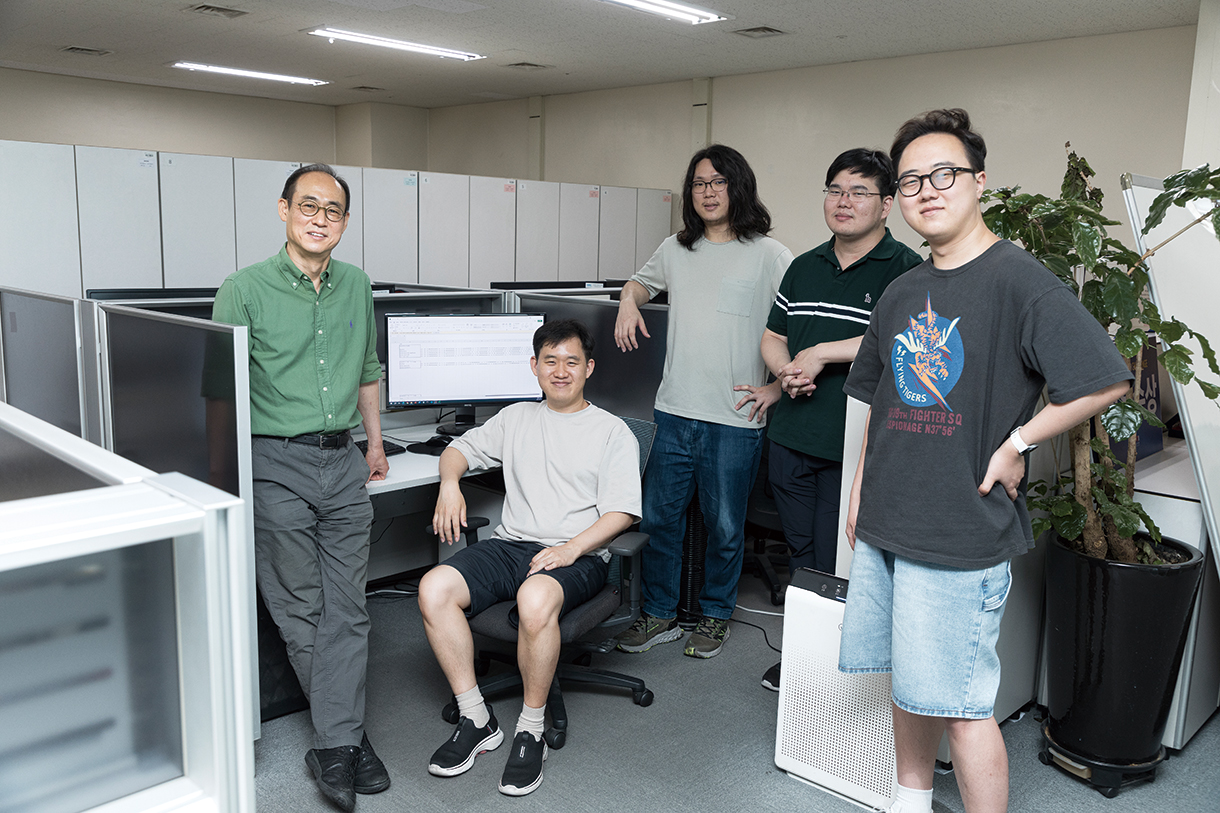
보이지 않는 위협, 신호정보 기술로 대응
우리나라도 보이지 않는 위협에 대비, 대응하기 위해 꾸준히 준비해 왔다. 국외에서 발생하는 신호를 지상과 해상, 공중에서 수집해 유용한 정보를 도출하고자 노력하고 있다. 현재 국방부 소속 정보기관인 777사령부에서 컴퓨터공학, 암호학, 전자·통신공학, 수학, 정보보호학 등 여러 분야 전문가를 모아 국가 안보와 정보력 제고를 위해 힘쓰고 있다.
“신호정보를 수집해 해석하는 일은 결코 쉽지 않습니다. 수없이 많은 조각의 퍼즐을 밑그림 없이 맞추는 작업과 같죠. 공개되지 않은 형태의, 상대가 감추려고 애쓰는 신호를 분석해야 합니다. 더욱이 신호를 해독한 것이 밝혀지면, 상대가 신호를 바꿔버리기 때문에 맞춰야 할 퍼즐이 더 많아지죠. 굉장히 난도 높은 작업입니다. 하지만 신호를 해석해 낸다면 최첨단 무인체를 탈취하거나 상대의 전력을 교란, 무력화시킬 수 있는 등 그 파급력은 어마어마해집니다.”
윤동원 교수가 이끄는 신호정보연구센터는 국내 최고 수준의 기술을 갖추고 우리나라 신호정보 기술 발전에 독보적인 역할을 수행해 왔다. 방위사업청이 지원하는 ‘신호정보특화연구센터 사업’에 선정돼 2015년부터 2020년까지 6년간 총 125억 원의 연구비를 받으며 신호정보 수집·처리·복원 기초 연구를 진행한 바 있다. 4개의 전문연구실에서 총 17개의 기초연구 세부 연구과제를 수행했는데, 주관 연구기관인 한양대를 중심으로 국내 18개 대학의 전문 연구 인력이 힘을 모았다. 군에서 방위사업청에 요청해 이뤄진 최초의 특화연구센터 사업으로 의미가 컸다. 더 특별한 것은 윤동원 교수의 신호정보연구센터가 민간 최초이자 거의 유일하게 신호정보 기술 연구·개발을 본격화했다는 점이다.
“신호정보특화연구센터 운영 이후 주요 방위산업체 중 하나인 LIG넥스원으로부터 연구의 중요성을 인정받았습니다. 2022년 7월부터 5년간 약 20억 원의 연구비를 지원받기로 협의하고, 신호정보 분석장비 국산화를 위한 연구에 착수했습니다.”
신호정보연구센터는 대규모 연구비가 투입된 특화연구센터가 실제 자립화를 이룬 첫 사례로 꼽힌다. 최근에는 방위사업청으로부터 ‘우주 공간 신호정보 특화연구실’로도 지정됐다. 지상과 해상, 공중에서 이뤄지던 신호정보 연구가 우주 공간으로까지 확장된 것이다. 해당 사업에는 2028년까지 50억 원의 연구비가 투입되며 약 100명에 달하는 연구자가 함께한다.
미국이나 러시아, 중국 등은 이미 정지궤도에 인공위성을 올리고 전 세계의 신호정보를 감시하고 있다. 정지궤도는 고도 약 3만 6000㎞ 지점이다. 인공위성 주기와 지구의 자전주기가 동일하기 때문에 지구에서 봤을 때는 항상 정지하고 있는 것처럼 보인다.
“우주통신 관련 연구는 2008년도부터 진행해 왔습니다. ‘우주통신연구실’이라는 이름을 국내 처음으로 사용했던 것 같습니다. 최초의 국가 우주연구실로서 달 탐사를 위한 통신 시스템 개발에 참여했고, 현재 우리나라 달 탐사 분야에 많은 부분이 적용돼 있습니다. 이번에 다시 특화연구실로 지정된 만큼 사명감을 가지고 우주 시대를 대비해 갈 예정입니다.”
Responding to invisible threats with signal intelligence technology
Korea has also consistently prepared to counter invisible threats. Efforts have been made to collect signals from land, sea, and air to obtain useful intelligence. Korea is gathering experts from various fields, such as computer engineering, cryptography, electronics and communications engineering, mathematics, and information security, at 777 Command, an intelligence agency under the Ministry of National Defense, to enhance national security and intelligence capabilities.
“Gathering and interpreting signal intelligence is never easy. It is like putting together countless puzzle pieces without looking at the picture. We must analyze signals in unopened forms as the adversary tries to hide them. When our opponent discovers that the signal has been decoded, it will change the signal, making the puzzle even ore difficult to solve. It’s a highly challenging task. However, if we can decode the signals, seize state-of-the-art unmanned systems, disrupt or neutralize the adversary's capabilities, its ramification would be tremendous.”
Professor Dongweon Yoon’s Signal Intelligence Research Center has equipped itself with the highest level of technology in the country and led in advancing Korea’s signal intelligence technology. The Center received a total of KRW 12.5 billion in research funding from 2015 to 2020, being selected for the ‘Signal Intelligence Specialized Research Center Business Owner Project,’ supported by the Defense Acquisition Program Administration, and conducted research on signal intelligence collection, processing, and restoration. Led by Hanyang University, 18 domestic universities pooled their expertise, conducting 17 detailed research projects in four specialized research labs. It was significant as it was the first specialized research center project initiated by the Defense Acquisition Program Administration at the military's request. Notably, Professor Dongweon Yoon’s Signal Intelligence Research Center is the first private, and almost the only, institute to start comprehensive research and development of signal intelligence technology.
“After the establishment of the Signal Intelligence Research Center, its importance was recognized by LIG Nex1, a major defense company. We’ve agreed to receive approximately KRW 2 billion in research funding over five years, starting July 2022, focusing on domestically producing signal intelligence analysis equipment.”
The Signal Intelligence Research Center is recognized as a pioneering example of a specialized research center achieving independence following substantial investment. Recently, the Defense Acquisition Program Administration designated it the “Space Signal Intelligence Research Lab,” expanding signal intelligence research from land, sea, and air into space. This initiative involves a research budget of KRW 5 billion until 2028, with nearly 100 researchers joining the project.
Countries like the United States, Russia, and China have already launched satellites into geostationary orbit, monitoring global signal intelligence. Geostationary orbit is at an altitude of 36,000 kilometers. They appear stationary because the rotation period is the same as the Earth’s.
“In fact, space communication-related research has been ongoing since 2008. We were the first to use the name ‘Space Communication Research Lab’ in the country. We participated in developing communication systems for lunar exploration, which are now widely applied in Korea’s lunar exploration efforts. As we are newly designated as a specialized research lab, we are committed to preparing for the space era.”
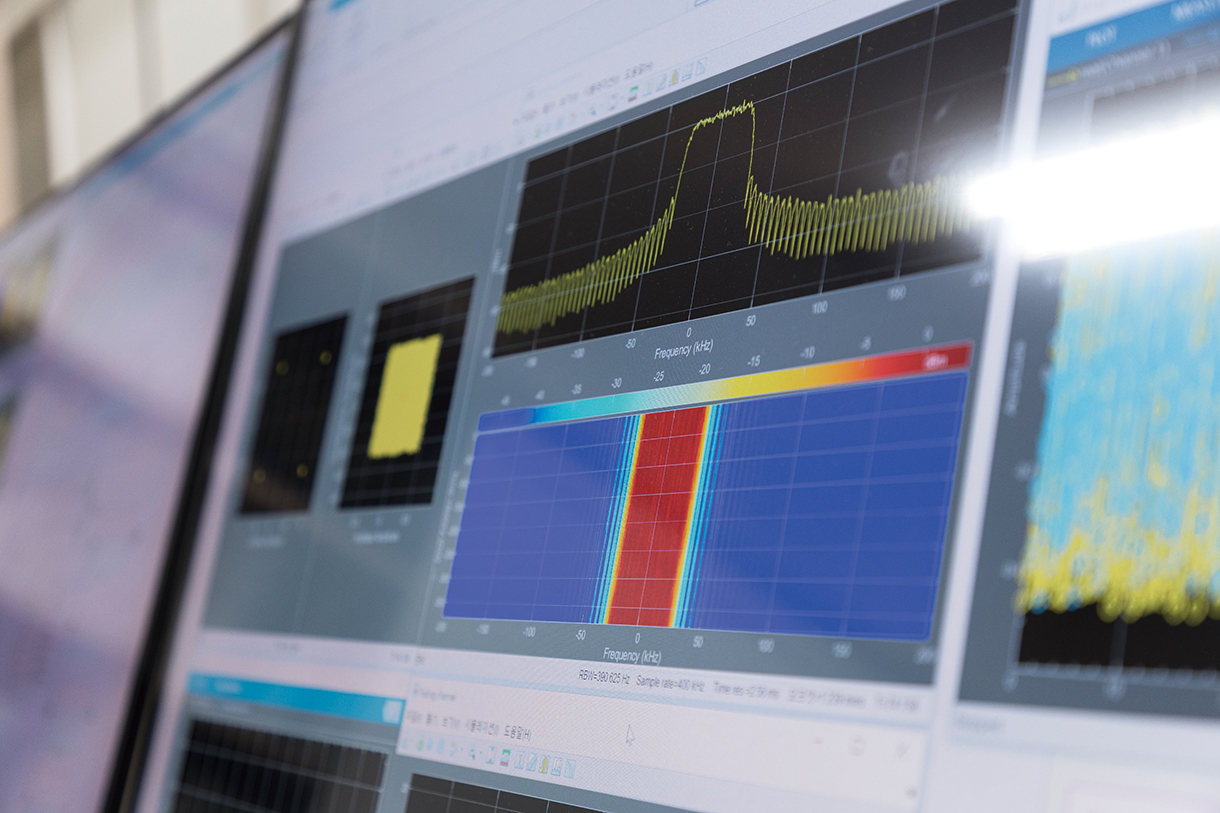
미래로 갈수록 모든 것이 무인화, 자동화, 지능화되며 우리를 둘러싼 모든 것에 신호가 생기게 된다. 신호정보의 중요성이 더욱더 커지고, 그 파급 효과 또한 막대해질 것이다
As we advance into the future, we’re witnessing an increasing trend toward unmanned, automated, and intelligent systems, with signals permeating virtually every aspect of our environment, amplifying the importance of signal intelligence and its ripple effects.
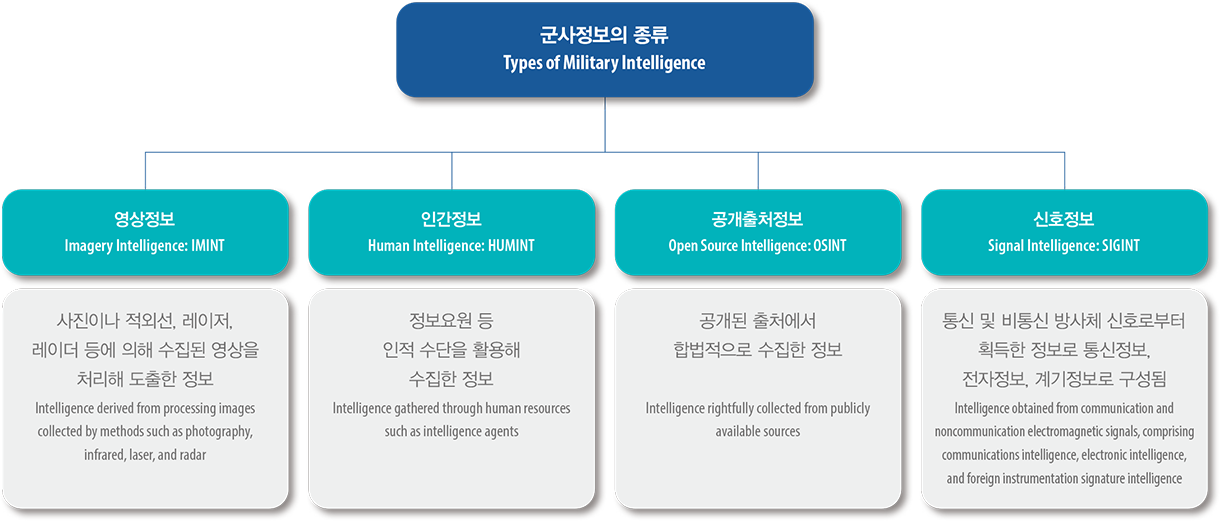
꾸준한 지원과 혜안이 필요한 국방 분야
윤동원 교수는 국내뿐 아니라 해외에서도 인정받는 통신학자다. 현재 사용되는 거의 모든 통신·방송 시스템에 적용된 전송방식인 QAM의 성능 기준식을 제시한 사람이 바로 그다. 전 세계 어디에 있든 통신 분야에 입문하면 윤동원 교수의 기준식을 익히게 된다. 뛰어난 스승을 따라 신호정보연구센터 소속 대학원생들도 한국전자통신연구원에서 개최하는 스펙트럼 챌린지 등에서 우승하는 등 남다른 역량을 자랑한다. 정부 출연 연구소를 비롯해 국방, 우주 관련 분야에 많은 인력이 진출해 있다.
“닭이 무기체계라면, 달걀은 정보입니다. 전쟁 억지력을 갖추기 위해서라도 국방력 강화와 방위산업 발전을 도모해야 해요. 자체적인 신호정보 기술 개발과 관련 장비 확보가 매우 중요합니다. 신호정보 분석 장비를 국산화하면 우리나라 국방에 이바지하는 것은 물론이고, 세계 시장에서 K-방산의 경쟁력을 높이는 데도 기여할 수 있죠.”
윤동원 교수는 신호정보 기술 연구·개발과 방위산업 발전은 사명감과 지속성이 필요한 일이라고 강조했다. 4차 산업혁명 시대를 상징하는 것은 빅데이터다. 그리고 국방 분야에서의 빅데이터는 신호정보다. 미래로 갈수록 모든 것이 무인화, 자동화, 지능화되며 우리를 둘러싼 모든 것에 신호가 생기게 된다. 신호정보의 중요성이 더욱더 커지고, 그 파급 효과 또한 막대해질 것이다.
“학생들에게 늘 ‘시종일관(始終一貫)’의 자세를 요청하곤 합니다. 무엇을 하든, 꾸준히 한 우물을 파는 열정과 정성, 뚝심이 있어야 해요. 정책도 마찬가지입니다. 당장 눈에 보이지 않더라도, 혜안과 관심으로 국방 분야 연구를 지원해야 합니다. 방위산업은 단순한 산업과는 다릅니다. 성급하게 단정 짓거나 단 건의 성과를 크게 홍보하기보다는 종합적인 시선으로 국가의 미래를 바라보는 자세가 필요합니다.”
Steady support and vision needed in the Defense Sector
Professor Dongweon Yoon is globally recognized in telecommunications. He presented the exact performance expression for QAM (Quadrature Amplitude Modulation), a transmission method applied to almost all current communication and broadcasting systems. No matter where you are in the world, you will learn the expression derived by Professor Yoon. Graduate students at the Signal Intelligence Research Center have demonstrated exceptional capabilities, winning competitions such as the Spectrum Challenge hosted by the Electronics and Telecommunications Research Institute. Many researchers from government-funded research institutes have branched out into defense and space-related fields.
“If a weapon system is a chicken, information is the egg. To possess deterrence force in war, we must enhance our defense capabilities and develop defense industries. It’s crucial to develop our own signal intelligence technology and secure related equipment. Domestically producing signal intelligence analysis equipment not only contributes to Korea’s defense but also enhances K-Defense competitiveness in the global market.”
Professor Dongweon Yoon emphasized that signal intelligence technology research and development, as well as defense industry advancement, require a sense of mission and continuity. Big data symbolizes the Fourth Industrial Revolution era, and big data in the defense sector is signal intelligence. As everything becomes unmanned, automated, and intelligent in the future, signals will be generated in everything around us, thus amplifying the importance of signal intelligence and its ripple effects.
“I always ask my students to maintain a consistent attitude. In whatever you do, you need passion, diligence, and perseverance, and you must stick to what you do. Whether in research or policy, we must support defense sector research with foresight and interest, even if immediate benefits are not visible. Defense industries differ from other industries. Instead of hastily concluding or publicizing single achievements, a comprehensive perspective is needed to envision the nation’s future.”
